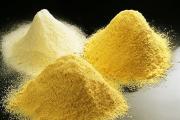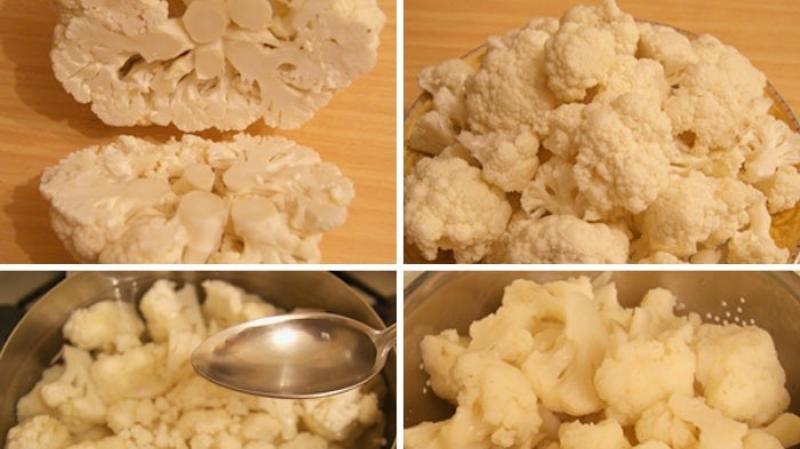What aroma, taste and price should olive oil have in order to be a really good product. How Olive Oil Will Add More Flavor to Your Food How Extra Virgin Olive Oil Tastes
Olive oil is a product that was discovered over 140 centuries ago. At the dawn of civilization, people knew that the olive tree and its products can work wonders. It perfectly saturates, serves as a component for many beauty recipes, heals and heals. The beauties of ancient Egypt and Greece used oils to make their skin and hair an object of admiration and seduction. They were used by the leading luminaries of science of those millennia, such as Hippocrates and Aristotle. But why is olive oil bitter? Does its taste differ from the one that was many thousands of years ago?
The trend towards a healthy lifestyle and proper nutrition is becoming more and more popular, and this is good news. And so you decided to change your diet and go to the store for the coveted expensive bottle. Coming home, and having tasted a spoonful of the product for the first time, you have shock, panic and one single question, is olive oil bitter ?! Moreover, the bitterness is strongly felt, and you are sure that you got an expired and substandard product. What to do? Hurry to the store and scold the seller, pour out and forget about the attempts at proper nutrition? Take your time until you read the information below.
Types of olive oil
In order to understand the issue, you need to know what types there are, and there are three main ones.Virgin olive and Extra virgin olive oil
This olive oil is the best product as it is completely natural. All useful substances are stored in it as much as possible, and our body assimilates them by almost 100%. That is, all useful substances with daily consumption of the product in food will replenish the daily norm and heal the body, improve the external condition and raise the body's defenses.
The products are wrung out using the temperature, but it does not exceed 27 degrees by mechanical means. Virgin olive is not processed, refined, or added to any components, dyes, additives. This is a treasure trove of benefits. But Virgin olive has its own varieties.
- Extra virgin olive oil is the finest vegetable oil product you can find for health. The oil is obtained after the first cold pressing from the best olives. The fruits do not have defects, they are not spoiled, not frostbitten, they are not carrion. This is like an elixir that is used for healing and for fresh food. The product yield after pressing is minimal;
- Virgin olive oil - obtained after cold pressing of the fruit. It is also useful, but it contains fewer components necessary for our body. The price of this oil will be lower. The acidity is higher - 2 grams per 100 grams of product. Such oil can be found more often on the market, since the first category is rare, of high quality and expensive;
- Ordinary virgin olive oil - the acidity values of this product are even higher and amount to 3 grams per 100 grams. This oil was obtained using biological reagents.
On a note! Why is Extra virgin olive oil used for treatment? The fact is that this is the most natural product and it has a low acidity, which is 0.8%. And medicinal oils should have this figure up to 1%. They are not suitable for frying and for other thermal processing of products.
The best oil is prepared under strict quality control. All indicators must comply with norms and standards, have certificates of conformity. It is very difficult to meet real Extra virgin olive oil with low acidity. Such a product is obtained only by pressing the best fruits, but a little finished oil is obtained. It is labeled Extra virgin.
But olives can still give a lot, and therefore they are poured with water and pressed again. Such oils are also useful, but all indicators will be more suitable for cooking than for use in medical treatment and cosmetology.
Rafined olive oil
This is a more traditional option. And all because we are used to using refined products. This category is just that. That is, it went through a series of treatments, after which the unpleasant odor, bitterness was eliminated and for frying, heat treatment of products - this is the best option.
It is also worth noting that this category does not emit carcinogens, therefore it is useful to use it. Oil costs much less than the categories that were previously described. For treatment, this option is not suitable, since there are fewer useful components in the product after passing through a series of treatments. Refined oil is obtained after the second pressing of the fruit.
Important! When you go to the store, be sure to pay attention to the labeling and cost of the product, as well as the acidity indicators. You should not buy the cheapest product, since there is a minimum of natural Extra virgin olive oil in it, the rest of all additives and benefits from the product should not be expected.
Pomace olive oil
This is the third category, which has a quality lower than the previous two, and it is obtained from the cake after pressing, from which the last drops of oil are squeezed out. There are few of them and refined oil and other additives are added to the product. But again, there are two types of this product:
- Olive-pomace oil is exactly a mixture of pomace and refined oil. But it can be bought for cooking, bitterness and burning oil does not form during heat treatment;
- Refined olive-pomace oil is a product made only from pomace, and it should not be bought for food, since its quality is the lowest and there will be no benefit.
So, what types are there, you now know, but the main question, why olive oil is bitter, has remained unanswered so far. That's the next part.
On a note! Manufacturing firms put different markings. If you see the word Bio, then check the composition for acidity and you can safely buy this product, since these are the best oils that are prepared under strict control.
Bitter olive oil: is it worth worrying about?
You bought or brought you olive oil from sunny Italy, but it is unpleasant, so bitter that it even hurts in the throat. Have you been given a fake? Not at all. Yes, as strange as it sounds, olive oil is bitter and that's okay.
Moreover, if the product has a specific bitterness, then you should rejoice, since you are holding real cold-pressed olive oil in your hands. Look at the packaging and composition of the product. If the acidity is up to 1% and there are markings that we described to you above, then this product is healing. No need to fry on it. This is for salads, dressings, fresh consumption.
If you have already begun to cook, then you should not expect unpleasant bitterness in the finished dish either. The food will be delicious, except that many of the beneficial properties will disappear. Therefore, for frying, stewing, take refined oil, and then you will not worry about the bitter taste.
On a note! If you ever have to taste olives, not from a can in a marinade, but fresh from a tree, you will find that they have a bitter tart taste. Of course, oil that has only been cold pressed will retain this bitterness, and you must understand that this is normal and good.
But it is best to use the product with bitterness right away. That is, you should not keep the bottle for special occasions, or as a present for better times. The oil will only be beneficial for the first time after opening the bottle. At this moment, it can really work wonders and heal your body, making it attractive in appearance.
Now you know that real olive oil tastes bitter, and you can safely use the product and start eating right.
All materials on the site are presented solely for informational purposes. Before using any means, a consultation with a doctor is MANDATORY!
Olive oil has been produced since ancient times. Even then, people appreciated the product for its excellent properties. It nourishes, is used in various beauty recipes, heals and heals. But many are wondering why olive oil is bitter. The answer to this question can be found in the article.
Virgin olive and Extra virgin olive oil
You should purchase this particular product if you are interested in which olive oil is better. It is completely natural. All valuable components are preserved in it, moreover, they are completely absorbed by the body. It can be included in your daily diet.
With everyday use, it will be possible to replenish the daily rate and restore your health, improve the condition and the body's defenses. The product is subjected to mechanical wringing at a temperature not exceeding 27 degrees. It is not processed, not purified, additional components, dyes are not added. Why is olive oil bitter? This is due to the taste of the fruits from which the products are prepared.
Kinds of the best oils
To find out which olive oil is better, you should familiarize yourself with its types:
- Extra virgin olive oil is the best health product. This is an extra virgin olive oil made from the finest olives. The fruits have no defects, they are not spoiled, not frostbitten. The products are great for treating and eating.
- Virgin olive oil - created after cold pressing of olives. The product is also useful, but it contains fewer valuable components. Its cost will be lower. The acidity is higher - 2 g per 100 g.
- Ordinary virgin olive oil - acidity is equal to 3 g per 100 g. The product is created using biological reagents.
Why is Extra virgin olive oil used in treatment? This is due to the fact that the product is natural, and it has a low acidity, which is 0.8%. And useful oils should have an indicator of up to 1%. They are not used for frying and heat treatment. Should olive oil be bitter? Real products must have this property, they are considered the most useful.
A quality product is created based on rigorous quality control. It is important that the indicators comply with norms and standards, in addition, there must be certificates of conformity. It is not easy to find oil with low acidity in stores. It is obtained by pressing the best fruits, but little product is obtained. But the olives are poured with water and squeezed again. Such oils are considered useful, then they are suitable for dishes, and not for treatment and cosmetology.
Refined olive oil
This oil is traditional as most people are accustomed to using refined products. This category is just like that. The product undergoes many treatments, after which the unpleasant smell and bitterness disappear, so it is ideal for frying.
This type of oil does not emit carcinogens, so it is useful to use it. The cost of the product is less compared to the above products. This oil is not used in treatment, as it contains fewer valuable substances due to processing. It is created after the second pressing of the fruit.
When buying, it is important to look at the labeling, price, acidity. You should not buy cheap products, since there is a minimum of natural oil. The rest is supplements, so there will be little benefit. Why is olive oil bitter? The reason for this is the bitter taste of the olives, which persists even after pressing.
Pomace olive oil
The products belong to the third category, their quality is lower than the previous ones. It is created from the cake after pressing, when it is necessary to get the remaining oil. There are few of them, so refined oil and other components are added. There are two types of product:
- Olive-pomace oil. The products include a mixture of cake and refined oil. But it is purchased for cooking. Bitterness and fumes do not appear during heat treatment.
- Refined olive-pomace oil. The product should not be purchased for food as it is of poor quality so there will be no benefit.

Why is unrefined olive oil bitter? The reason is the bitter taste of the olives. Even after processing, it persists. Usually, the bitterness disappears with cooking.
Bitterness
Why is olive oil bitter? This is due to the taste of olives. In addition, it can tickle in the throat. In fact, olive oil tastes bitter - that's okay. A genuine cold-pressed product must be bitter. You should look at the packaging and composition. If the acidity is up to 1%, then this product is healthy, but you should not fry it on it. It is used for salads, dressings.

Fresh olives have a tart taste. There will be no bitterness in the dish after cooking. The food will be tasty, but many valuable properties will be lost. Therefore, refined oil should be chosen for frying and stewing. All dishes with it are tasty and aromatic.
Thus, the olive oil tastes bitter - this is normal, since fresh fruits have a bitter tart taste. This property is retained after cold pressing. It is advisable to use the product immediately; it should not be stored only for special cases. The oil will be useful only after opening the bottle.
Benefit
The healing properties of oil were noted by Hippocrates, Aristotle was the first to use it in the treatment of people. And Cleopatra consumed one spoonful of the product on an empty stomach for health. The benefits are as follows:
- The presence of beneficial fatty acids, the main of which is oleic.
- Reducing blood cholesterol levels and improving the functioning of the gastrointestinal tract.
- Treatment of heart disease.
- The oil is absorbed 100%.
- Skin treatment and elimination of stretch marks.
To improve your health, you must definitely include this product in your diet. Olive oil tastes bitter and is considered normal. If you try it for the first time, it may seem strange, but over time, the body gets used to it.
Application
Due to its beneficial properties, the product is used in various fields. It is in demand in cooking, cosmetology and folk medicine. Olive oil is used for cooking: it is added to salads, side dishes, sauces and soups. It tastes unusual. Should olive oil taste bitter when eaten? This is considered normal since fresh olives taste like this. But in combination with other products, a bright taste is obtained.

A popular industry where oil is used is cosmetology. A valuable oil product will be an excellent nutrient for healthy and youthful skin. The oil is used to obtain cosmetics - creams, gels, shampoos.
In folk medicine, oil occupies a special position. Since ancient times, it has been used to treat various diseases due to its medicinal properties.
Choice
How to choose a non-bitter olive oil? You need to pay attention to the words Refined olive oil on the packaging. Such a product does not have bitterness after long-term processing. When buying, it is important to pay attention to the following nuances:
- Bottle. It doesn't have to be plastic. The product must be taken only in dark glass.
- Label. It is important to familiarize yourself with the composition. It is necessary that the oleic acid was at least 55%, and even better 83%.
- Acid number. This indicator indicates the presence of free fatty acids. The higher it is, the lower the quality. If you buy Extra Virgin, then no more than 1.5, and even better 0.5.
- Peroxide number. In Extra Virgin it should be no more than 20 mmol / kg. This indicator indicates the oxidation of fats in contact with oxygen. The lower the number, the higher the quality.
- Determination of the mass fraction of moisture. The lower the indicator, the more valuable substances. An excellent indicator is 0.1%, and even better - 0.06%.
- Best before date. Purchase only fresh oil. If it is stored for 6 months, valuable components are lost. You should not choose oil that was produced more than 1 year ago.
- Color. It depends on the time of harvest, the ripeness of the olives, the presence of impurities. It is advisable to buy golden oil, which may have shades. You should not buy a gray or strongly yellow product.
- Category. The best is considered to be Extra Virgin, since the beneficial properties are preserved in the product. It has not been chemically processed and is made from the finest varieties of olives. It is used for cooking and cosmetology.
- Abbreviations. There are other signs that will help you choose a quality oil. For example, DOP (denominacion de origen protegida), created from the best varieties of fruits, is also bottled where it was made. Such a product is manufactured to the highest standards and is constantly tested.
- The country. This information should be indicated on the label. It is desirable that the product is made in Spain, Greece, Italy, Turkey, Israel, Syria.

Considering these nuances, it will be possible to choose a quality product. It will be good for your health. And low-quality products, as you know, can do great harm.
Harm and contraindications
The product may not be used by everyone. In order not to cause negative reactions, it is better to exclude it from the diet. Olive oil also has negative nuances:
- In case of cholecystitis and cholelithiasis, the product should not be consumed, since it has a choleretic effect.
- The oil is considered high-calorie: in 1 tbsp. l. there are 120 calories. This rate will be sufficient.
- Frequent use of the product in excessive quantities entails serious complications: dizziness, low blood pressure, headaches.
- The oil is considered a laxative and may cause mild diarrhea.

For the oil to have a healing effect, it must be consumed with valuable ingredients. For example, a combination with fresh vegetables and fruits would be great. Only without heat treatment is oil considered beneficial to health.
First of all, olive oil is loved for its taste, so the quality of the oil is largely determined by this very taste. Extra Virgin oil has a bright and rich taste. If the oil has been stored incorrectly, the taste will deteriorate. Refined olive oil has no taste at all!
How extra virgin olive oil should taste like. 3 main characteristics
Fruitiness (bouquet of flavors and aromas), pungency and bitterness - Here are the three main flavor characteristics of Extra Virgin Olive Oil. They talk about the quality and freshness of the oil.
Bouquet (fruitiness) - the range of brightness of the taste of the product. It depends on the variety, the degree of ripeness of the olives at the time of harvest and the processing conditions. It is especially pronounced in the oil squeezed from fresh green olives.
A pleasant shade of bitterness is that the primary taste that is felt at the top of the mouth and tongue. Olive oil squeezed from green olives tastes bitter.
Why is olive oil bitter? ?
Many people perceive the bitterness of olive oil as a defect. But this is a delusion. Bitterness is not a defect, but a feature of Etxra Virgin olive oil.
With irregular use of oil, a pleasant shade of bitterness appears on the back of the tongue. In high doses, bitterness is a sign of poison, but a little bitterness makes the product surprising and pleasant - like dark chocolate or coffee. Bitterness is a key component of flavor balance and is a sign of the presence of beneficial antioxidants. Butter made from ripe fruits will have much less bitterness, while those made from green fruits tend to be quite bitter.
Astringency or pungency : "peppery" sensation and slight burning sensation in the throat when tasting the oil. This is especially true for oil squeezed at the beginning of the harvest season, mainly from olives, which are still green.
This fiery feeling in the throat is called pungency. The peppery sensation is a sign of the freshness of the olive oil.
More is not necessarily better. Sharper than fruity, for example, but they are both beautiful, highly awarded, and perfect for a variety of uses.
How to check the quality of olive oil. Hot potato test
First, prepare a potato. Boil or bake in your uniform.
While the potato is hot, place it on a plate, cut the peel on top and pour olive oil into the resulting space.
If the olive oil is really high quality, then it will give the potatoes a bright aroma of freshly cut grass, berries or olive greens, or any other fresh aromas. Well, if the smell is heavy and unpleasant, then this oil is of poor quality.
Signs of tainted olive oil
As with wine, identifying tainted olive oil takes some practice. Hay, cardboard, vinegar, dirt, and mustiness are just a few of the scents that indicate the oil is tainted.
There is a long list of possible defects. Here are some of the main ones to look out for:
Rancid olive oil
Rancidity is the most common defect. It appears when the oil undergoes oxidation. Oxidation can occur before or after filling, especially if the bottle has been exposed to light and heat. This is why it is so important that the olive oil is fresh and stored properly. Look for the harvest date on the bottle. If not, you shouldn't buy such oil.
Musty smell in olive oil
Musty odor is the result of storing olives in piles prior to pressing, resulting in anaerobic (no oxygen) fermentation. To prevent this from happening, good olive oils are cold-pressed just a few hours after harvest. So, if you smell a musty smell in olive oil, then this is no longer Extra Virgin and the acidity of such an oil is high.
To verify the authenticity of the oil, look for a special holographic print on the back of the label and ask ...
What types of olive oil can you find on our counters?
In Russia, most often we can find three main types of oil:
- Extra Virgin Olive Oil
- olive oil
- olive oil pomace (Romasse olive oil).
Extra Virgin Olive Oil
This oil can be called "fresh olive". It is obtained by pressing olives exclusively by mechanical means, without the use of chemical and biochemical additives.
During the production process, olives are not subjected to any processing other than washing. And they collect and process them within 24 hours!
That is why this type of oil has such a high nutritional value and does not lose it for at least 18 months.
Extra Virgin Oil Acidity should be up to 0.8%. Be sure to check the acidity value on the oil packaging.
If the acidity is not indicated on the bottle, this is a reason to be wary, whether the oil inside is of the Extra Virgin type.
Due to the excellent qualities of the product obtained, modern doctors recommend Extra Virgin olive oil for both adults and children from 6 months.
Extra Virgin flavor depends on the type of olives, but at the same time it certainly tastes bitter... If it is young, then the bitterness is more pronounced, if it is more than six months, it is weaker. Actually this bitterness is very useful.
Extra Virgin olive oil is also available with the designations DOP and IGP.
Extra Virgin Olive Oil DOP and IGP
The first (DOP) means that both olives and the production of oil from them were carried out in a specific geographical location, in a specific territory, which is included in the European register under a specific register.
More stringent requirements apply to this oil.
The climatic conditions, the traditions of production, the olive varieties inherent in this place, exclude its copying by other producers. And therefore it is very expensive.
Very little of this oil is produced in all Mediterranean countries.
And practically all of it remains in Spain, Italy, Greece for their own consumption and is almost never exported.
Only very wealthy people can afford to buy such oil. And only professionals and experienced chefs can appreciate it.
This oil can be found in high-end gourmet stores around the world, and its quality is assessed according to the same system as an aged elite wine.
In fact, its health benefits are no better than plain commercial Extra Virgin olive oil. It differs only in the bouquet of taste and smell.
IGP also means the belonging of the oil to a specific region included in the European register of agricultural products and food products.
At the same time, one or several phases of the production process can be protected in the specified area (collection of raw materials, processing and classification of olives, production of oil using a special technology that is historically inherent only in this region).
This is a strict set of rules, the observance of which is strictly controlled by a special independent commission of the European Union.
This oil is also very expensive, scarce and available in gourmet stores.
Organic or organic olive oil (Bío, Eco) produced in compliance with EU regulation 834/07, which certifies and controls all phases of the production of this food.
In their implementation, the use of synthetic chemicals and genetically modified organisms is prohibited.
Also, the processing of the soil and the olive trees themselves and fruits is carried out only with the use of organic substances and natural materials.
This is also monitored by a special independent commission of experts.
Such oil is also very rare, it is also very expensive and you can find it all in the same gourmet stores.
In Russia, you can find counterfeit olive oil marked "Bío" more often than olive oil DOP and IGP. As the manufacturers do not accept any responsibility for the application of the words “bio”.
To verify the authenticity of the oil, look for a special holographic seal on the back of the label and ask for a certificate of origin. And of course, Extra Virgin oil cannot be cheap.
Olive Oil
This is a mixture refined olive oil and Extra Virgin in a ratio of 85% / 15%.
Maximum acidity allowed up to 1% in terms of oleic acid.
This oil is of excellent quality, which you can also use in any dish.
Ideal for frying, since the presence of more stable fatty acids in it is greater than in other vegetable oils, which makes the smoke point much higher than the temperature for normal frying of food.
This oil can also be used for dressing salads, making sauces, it doesn't taste bitter at all if you are not used to bitterness.
At the same time, your dish will be healthy, but without the aroma of Extra Virgin olive oil, which gives any dish a unique taste.
Pomeis (Romasse olive oil)
This is an extra virgin olive oil.
The process is identical to any other vegetable oil, using organic solvents and high temperatures.
After extraction, the resulting oil is mixed with Extra Virgin to reduce acidity and improve the quality of the final product.
Therefore, the labeling of pomace oil as “olive oil” is simply against the law.
This oil does not have the same nutritional value as the other two types of olive oils, but it does contain all the vitamins and minerals found in natural oil, only to a lesser extent.
You can use it in any recipe. It is great for frying, where a large amount of oil is required (for deep frying), as it is much cheaper than others.
In which container is it better to buy olive oil and why?
It is better to buy olive oil in glass or tin containers.
The container into which the oil is poured must be hermetically sealed and not let in sunlight.
Glass bottles must be made of dark glass.
Sunlight accelerates the oxidation process, in which the oil gradually loses its beneficial properties. The quality and taste of the olive oil is getting worse.
In plastic bottles on sale you can find pomace and mixtures of olive oil with vegetable oil. But even this type of oil must be in dark plastic.
What storage conditions for olive oil must be observed at home so that it does not deteriorate prematurely?
The oil must be stored in a closed container in a cool, dark place with a tightly sealed lid. in light and in air, it oxidizes and loses its beneficial properties.
The oil freezes at -8 ° C, forming white flakes.
After thawing, it takes on its natural appearance.
All useful properties, taste and aroma are preserved at the same time.
The expiration date indicated on the packaging must be observed, since over time, the oil oxidizes.
This process is faster in uncorked bottles.
How long can the oil be used after opening the bottle?
The expiration date of the oil is indicated on the packaging.
It is necessary to choose the optimal container volume for yourself, depending on the frequency of use, in order to use the oil before the expiration date.
It makes no sense to buy oil for future use, because it is oxidized.
Unopened in the refrigerator, the oil can be stored for longer than the expiration date indicated on the label. published.
If you have any questions, ask them
Tatiana Amelkina
P.S. And remember, just by changing our consumption - together we are changing the world! © econet
It is a treasure trove of health, which is confirmed by various scientific studies. And despite the fact that today the Internet is full of information about the benefits of olive oil, I still want to offer you the most simple, affordable and quick recipes - tips for beauty of the body and face (in Greece, since ancient times, women have used olive oil as a natural cosmetic means), for the liver, in dietetics, for dressing salads and dinners.
I will start with the fact that you know that it is still preferable to have a high quality olive oil that does not have any impurities, obtained from pure oil.
The oil contains vitamins A and D, which are involved in the renewal of the epidermis, reduce the number of keratinized skin particles and protect against environmental pollution, and carotene - from exposure to ultraviolet rays. What's more, olive oil also helps with sunburn as an antibacterial, emollient and moisturizer. And then don't forget that sea water and chlorinated water in the pool aggravate dehydration of the skin, which begins to "feel thirsty." In addition to water and proper nutrition, which helps to moisturize the skin from the inside, olive oil is a unique "external" remedy that perfectly tones and revitalizes the skin of the face and body.
Regular consumption of olive oil is an excellent prevention of cardiovascular diseases: it strengthens blood vessels and makes them more elastic.
Most medicines that help lower blood pressure are based on the leaves of the olive tree. In addition, olive oil has a beneficial effect on bone tissue, preventing calcium loss, which makes the product especially valuable for children.
The benefits of olive oil also lie in the fact that the linoleic acid in its composition promotes rapid healing of wounds and burns, it is also useful for maintaining muscle tone and normal functioning of body tissues. In addition, linoleic acid has a beneficial effect on vision and coordination of movements. More than one hundred years ago, our ancestors discovered that olive oil can help in the treatment of psychological disorders.
But one of the most amazing health benefits of olive oil, proven in numerous studies, is that it reduces the risk of cancer, particularly breast cancer. Oleic acid, vitamins and antioxidants that make up the oil suppress the development of cancer cells, or rather, they remove toxins that, among other factors, affect cell mutation.
Benefits and harms of olive oil: olive oil in the service of beauty
The benefits of olive oil were appreciated not only by doctors, but also by cosmetologists, who actively include this product in the composition of creams, masks and balms for the face, hair and body.
Even in ancient times, beauties used olive oil as a cleansing, anti-inflammatory and moisturizer for the skin of the face. The oil mask is a rejuvenating agent that helps to reduce fine wrinkles thanks to the unique substances - squalene and squalane.
Phenols slow down the aging process, leaving the skin silky smooth, in addition, olive oil protects the skin from the harmful effects of the sun.
For hair, olive oil is also a miracle cure. Everyone knows the recipe for the simplest nourishing hair mask: you need to mix olive and sunflower oil in equal proportions and add egg yolk or a teaspoon of honey. As a result, the hair will acquire a luxurious shine and strength, for which the curls of Spanish and Italian women are famous, who regularly practice such masks and consume olive oil. Healthy looking and shiny hair is ensured by the richness of olive oil with vitamins A and E.
It is impossible not to mention another pleasant property of olive oil - it is often used for massage and rubbing. The oil softens and moisturizes the skin, accelerates the elimination of harmful substances and improves the secretion of the glands.
Fast and effective face and body care:
Let's start with the head, or rather the hair: apply some olive oil to damp hair and wrap a heated towel over your head. After 20 minutes, remove the towel from your scalp and you will see that your hair has acquired the shine of healthy hair. Moreover, you will feel the difference in the structure of the hair.
Face: if your skin feels dry and tired, then a gentle massage using a few drops of olive oil is enough. The result will not slow down - literally at once the skin of the face will look much younger, it will acquire elasticity and freshness.
Makeup Remover: To remove makeup, even around the eyes, just apply a little oil on cotton wool and cleanse your face.
Lips: Olive oil perfectly replaces liposan and helps to eliminate cracks on chapped and chapped lips.
Nails: there is no need to run to a beauty salon with the appearance of another burr. You can warm up some olive oil and lemon juice in a bowl at home and dip your "injured" fingers into it. The skin on your fingers will instantly soften, allowing you to remove excess skin from your finger.
Hands: forget about petroleum jelly and even creams, which, as a rule, especially in winter, are practically ineffective, and lubricate your hands with a little olive oil at night, put on thin cotton gloves and go to bed calmly. Your hands will always look pleasant and youthful: remember that it is the arms and neck that give a woman's age.
Body: Despite being busy, you still need to find time to relieve yourself of the stress of the daily hustle and bustle by taking a relaxing bath. When doing this, be sure to add a few tablespoons of olive oil to the water, which will help soften and moisturize your skin. For extra scent, you can add some essential oils like lavender or jasmine.
Feet: So many of us suffer from stiff soles and corns, despite the use of pumice, which, unfortunately, does not soften the skin as much as we would like. To do this, gently rub in a small amount of olive oil on the most "rough" places and go to bed - in order to give time for healing.
Helpful hints:
Olive oil has long been used in cosmetics as an ingredient in some cosmetic products, so before you buy, pay attention to what you are purchasing - products containing olive oil are the most effective.
And one more thing: olive oil can also be used for shaving, after slightly lubricating the skin. This will not only make the shaving process easier, but will also help avoid the effects of skin irritation.
Olive oil cream - a universal remedy for face and body
In ancient times, olive oil was used in all spheres of life - from domestic life, religious rituals to sports and medicine. In addition, among the peoples of the Mediterranean, it was also used as a cosmetic product for basic skin and hair care.
Do not forget that the first cream was made by the ancient Greek physician Claudius Galen (Κλαύδιος Γαληνός, 129-199 AD) based on olive oil.
Cream recipe from Galen
1. Melt 30 grams of beeswax in a heavy-bottomed saucepan (you can use natural wax candles). Heat 100 ml slightly separately. olive oil, then pour the wax into it and stir until smooth.
2. Heat 30 ml. distilled water, then add it drop by drop to the oil and wax mixture. After removing from heat, stir until the mixture is smooth, without lumps. Add 3 drops of geranium or aloe essential oil and let the mixture cool.
The cream is ready!
Attention! The cream can be used without geranium oil, and it does not lose its properties. Moreover, such a mixture can be used for all kinds of skin irritations, as well as for burns.
We wish you to be always healthy, well-groomed and beautiful!
The harm of olive oil
Although olive oil is one of the healthiest foods in the world, there are some of the negative effects that excessive consumption of olive oil can cause.
People suffering from gallbladder inflammation - cholecystitis - should be most careful with olive oil: due to its strong choleretic effect, oil can exacerbate the disease.
Despite the fact that olive oil is widely used in dietetics, it is necessary to strictly observe the measure - no more than two tablespoons of oil per day, because this product is quite high in calories: 100 grams of olive oil contains almost 900 calories, and one tablespoon accounts for about 150 calories.
Also, make no mistake about the fact that foods fried in olive oil do not harm the body. In fact, any oil, including olive oil, as a result of heating, not only loses its beneficial properties, but also becomes harmful. Therefore, you need to eat olive oil that has not undergone heat treatment.
However, it is worth repeating that all these negative qualities of the product appear only if a person eats too much olive oil.
The benefits and harms of olive oil: how to choose
To be sure of the benefits of olive oil, you need to choose the right product. How to do it? So, let's get acquainted with a number of rules that will help you make the right choice.
1. Olive oil, like others, can be refined and unrefined. All nutrients are retained only with minimal heat exposure. Thus, it is worth giving preference to unrefined oil.
2. In addition, one of three inscriptions can often be found on the packaging - virgin (natural), refined (peeled) or pomace (cake). Buy the first option.
3. If the word mix is written on the oil label, it means that it was produced by mixing different types of oils, which negatively affects its properties.
4. The beneficial properties of olive oil last for five months, so you need to pay special attention to the date of manufacture of the product.
5. The lower the acidity of the oil, the softer its taste. The highest quality olive oils have this figure of only 0.8%.
6. The best olive oil is produced and bottled in the same region. You can find out the origin of the product by the designations IGP or DOP. IGP (Indicazione Geografica Protetta) means that olives were pressed in one country, for example, Greece or Spain, and the oil was packed outside these regions. The abbreviation DOP (Denominazione d "Origine Protetta) indicates that the oil is produced and packaged within the same country.
7. Do not try to determine the quality of the oil by its color, this property is influenced by factors such as the variety of olives, their degree of ripeness and the time of harvest.
8. The best properties of olive oil are preserved in glass containers.
based on materials from grekomania.ru, fashiontime.ru,
The liver can be protected with olive oil.
Olive oil is able to restore the liver damaged by malnutrition and the destructive effect of alcohol.
Liver problems can be caused by unhealthy diet and poisoning with toxic substances, in particular alcohol. However, cold-pressed olive oil can prevent its destruction and help to restore it faster. Such results have shown a new study.
Experiments in the course of the study were carried out on laboratory rats, the food of which was supplemented with herbicides and other toxic substances that destroy liver tissue. Those animals that received olive oil or extracts from it, after the experiment, had healthier livers and recovered faster than those who did not receive the oil. And yet, scientists emphasize that olive oil should be exactly cold pressed (the label should say extra virgin). Thus, liver dysfunctions caused by too fatty foods, alcohol and toxic substances can be neutralized with natural olive oil by adding it to food, for example, in Greek salad or other vegetable salads. Many experts also advise taking a spoonful of olive oil on an empty stomach, but I believe that the benefits of olive oil on an empty stomach are questionable, since the fatty substance carries a huge burden on the liver and can cause stones to move. But how does such a pebble stop in the wrong place (a duct, for example), and an attack provoked as a result can be very expensive and will certainly end in a hospital bed.
So, 10 indisputable facts:
1. Olive oil: unique composition
The main secret of olive oil is in its unique composition; it is a real storehouse of useful components that are absorbed by the human body by almost 100%.
Olive oil contains a large amount of antioxidants and vitamin E, which helps to assimilate vitamins A, K. The result of such a natural "chain reaction" is a general rejuvenation of the body, improving the condition of the skin, hair, nails.
And not without reason in Greece, where olive oil is worshiped, the indicator of life expectancy is one of the highest in the world.
2. Olive oil: benefits for the digestive system
Olive Oil: Benefits for the Digestive System Olive oil is very beneficial for the digestive system. It improves the activity of the stomach, intestines, pancreas and liver, promotes healing of stomach and duodenal ulcers.
Olive oil has a choleretic and mild laxative effect. This is a rare and valuable property, because other vegetable oils have no choleretic effect.
A dessert spoon of olive oil on an empty stomach in three months helps to cure stomach ulcers and gastritis, while a spoonful of sunflower oil in such a situation can provoke hepatic colic and exacerbation of gastrointestinal diseases.
3. Olive oil: prevention of cardiovascular disease and cancer
Olive oil for the heart Olive oil is a natural remedy for the prevention of cardiovascular diseases, especially heart attacks and strokes, as well as cancer. The secret lies in the content of a record amount of monounsaturated fatty acids Omega-3, which prevent atherosclerotic plaques from being deposited on the walls of blood vessels and even destroy those that are already there.
Train yourself to take two tablespoons of olive oil a day (dressing salad, add to soups, side dishes, marinades), and your heart will work like clockwork.
It is a known fact that the lowest mortality rate from cardiovascular diseases is in Greece, the world leader in the consumption of olive oil per capita.
In addition, scientists have found that the oleic acid contained in olive oil stimulates a gene that suppresses the activity of cancer cells. Accordingly, the risk of developing cancer, in particular breast cancer in women, is reduced.
4. Olive oil: benefits for children
Benefits of Olive Oil for Children Olive oil is especially beneficial for children and pregnant women. the fatty acids contained in it are involved in the formation of the fetal brain, its bone and nervous systems.
Also, olive oil provides a gentle transfer of infants to adult food. The fact is that the fatty acids of extra virgin olive oil are very similar to the fats that make up breast milk: linoleic acid in both is about 8%. Olive oil should be added to cereals and mashed vegetable purees.
It is important to remember that a lack of linoleic acid in the body can cause a number of skin diseases.
5. Olive oil is ideal for frying
Olive oil is one of the best oils for frying. it retains its structure at high temperatures and does not burn.
According to research, Extra Virgin olive oil starts burning at temperatures above 240 degrees and practically does not oxidize due to its low content of unsaturated fatty acids. Therefore, lovers of healthy food can safely use it to prepare all kinds of dishes - to warm up, fry, fry - and at the same time enjoy the pleasant natural aroma, without which it is impossible to imagine healthy Mediterranean cuisine.
Unlike olive oil, our favorite sunflower and corn oils have one major drawback - they are extremely susceptible to oxidation, especially when heated and left open to air. As a result, we get carcinogenic products that are detrimental to the mucous membrane of the gastrointestinal tract.
6. Olive oil in cosmetology
Olive oil in cosmetology Since ancient times, olive oil has been widely used in cosmetology. To preserve and maintain beauty and youth, women in Ancient Greece regularly used masks based on olive oil.
Today, cosmetics based on Extra Virgin olive oil are very popular. It is found in various creams, masks, shampoos, and soaps.
Olive oil is ideal for skin because:
Well absorbed, does not clog pores, which is important for skin breathing, a good complexion,
Does not cause allergic reactions,
Prevents airborne impurities from entering the skin,
Thanks to the content of antioxidants and vitamin E, it prevents premature aging of the body and has a rejuvenating effect,
Has a disinfecting and wound healing effect, which helps to solve the problems of dry, inflamed and dehydrated skin,
Actively affects fat metabolism in the body, which is effective in the fight against cellulite and skin stretch marks,
Eliminates brittle and split ends, gives vital shine to hair, prevents dandruff and hair loss,
Relieves pain, also after sports training. Since ancient times, Greek athletes have rubbed their bodies with olive oil after sports.
7. Unrefined olive oil
The process of refining (refining) vegetable oil consists of three main stages: neutralization, bleaching, and deodorization. The result is a product without a pronounced taste, color and odor.
After opening a bottle of olive oil and not feeling the pronounced natural aroma of olives, think about the quality of the purchased oil.
Unfortunately, the inexpensive olive oils from our supermarket shelves are often a mixture of refined and unrefined oils.
Therefore, when choosing olive oil, it is important to remember that high quality oil cannot be cheap. One of the reasons for this is the time it takes to collect the olives. They are harvested in winter and usually by hand. One tree produces about 8 kg of olives, and 5 kg of olives are needed to produce 1 liter of oil.
8. What is the best olive oil?
What is the best olive oil The best olive oil is Extra Virgin. This is unrefined olive oil that has not undergone any thermal processing and therefore retained the maximum of useful substances.
Basically, the oil is filtered before bottling, but unfiltered oil is valued higher.
The main indicator of the quality of olive oil is its acidity. The acidity level is determined by the oleic acid content in 100 g of the product. The lower the natural acidity of the unrefined olive oil, the higher the quality.
High quality oil (Extra Virgin) should have an acidity of no more than 0.8%.
Oil with an acidity of less than 0.5% in the Mediterranean is considered to be medicinal.
Quality olive oil is labeled with the P.D.O. The quality of olive oil is also influenced by its variety. The best is the oil with the special P.D.O. (mark of protected origin), which is made from olives grown in a specific area. The entire production process of this oil is carried out at the point of collection of raw materials. This oil has a unique bouquet and aroma.
Organic Olive Oil from Greece Oil labeled "Bio" or "Organic" means that the olives were harvested from plantations with that label. This means that you get an organic product that meets strict system requirements, which include avoiding the use of chemical fertilizers and pesticides, growth regulators and genetic engineering methods.
9. Olive oil: the best producers
The world leaders in the production of olive oil are Spain, Italy, Greece and Tunisia. Moreover, an interesting fact: Spanish production volumes exceed Greek ones by three times, but at the same time they have Extra Virgin oil only one fifth of the total production. Greece, with smaller volumes, produces more than 80% of Extra Virgin oil and offers an optimal price-quality ratio.
Crete olive oil Olives are known to have settled in Greece over 5,000 years ago. There they found a favorable ecological niche. In Crete and in the mountainous part of Greece, olives have been growing wildly for decades, multiplying naturally on the roots of dead trees. Punching rocks, their roots go deep into the ground, nourishing the fruits with valuable substances.
Oil from other countries is often inferior in quality to Greek oil. The point, as a rule, is that raw materials are collected throughout the region from specially planted olives, which are abundantly watered. Naturally, the concentration of active substances in olives grown in this way decreases, and the taste weakens. And in order for the oil to meet the specified quality standards, manufacturers add the required amount of Greek olive oil to it.
10 olive oil: taste, color, aroma
Olive Oil Tasting The personality of an oil is determined by many factors.
Professionals say that a good olive harvest needs five ingredients: sun, stone, dryness, silence and privacy.
Indeed, the nature of the soil and climatic conditions are very important for olives. Depending on their characteristics, the color, taste and aroma of the oil can vary.
Take a short tasting to determine the organoleptic properties of the oil. Take a sip and hold it in your mouth. Pay attention to the color and bouquet, fruity taste, piquancy, light bitterness, enveloping consistency and highlight imperfections, for example, rancidity, mustiness, woody taste.
You are still wondering: "Which oil is the best?" Remember that there are over 700 varieties of olives growing in different parts of the world from America to Australia, but the Greek oil is still a little "stronger" with a stronger flavor.
And in conclusion, we will cite another fact that is unique and especially important for us, residents of a northern country with a small number of sunny days.
The fatty acid molecules of olive oil are very large, and the larger the molecule, the more carbohydrate atoms it contains and the more heat it gives. Therefore, olive oil provides the greatest flow of energy, which is especially necessary for the normal functioning of all organs and systems, and above all in order to cope with stress and stay in an excellent mood!













